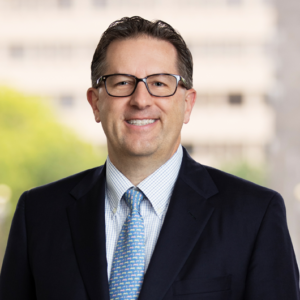Introduction
On October 23, 2012, the Department of Health and Human Services Office of Inspector General (the “OIG”) issued Advisory Opinion 12-15 addressing a hospital’s arrangement to pay a per diem fee to physicians in exchange for providing on-call coverage at the hospital’s emergency department (“ED”). The OIG found that the arrangement could implicate the Anti-Kickback Statute (“AKS”) but ultimately concluded that it would not impose administrative sanctions in connection with the arrangement.
Discussion
Under the arrangement, the hospital pays a per diem fee to specialist physicians (“Participating Physicians”) that provide unrestricted call coverage for the ED. The arrangement allows the Participating Physician to be off-site so long as he or she can respond, in-person, within 30 minutes. Notably, the hospital offers the opportunity to enter into one-year agreements to all specialists on its staff. Under the direction of the hospital’s ED physician, Participating Physicians who admit ED patients are required to provide inpatient services and potentially furnish follow-up care in their office practices, regardless of the patient’s insurance status or ability to pay. Participating Physicians must also timely prepare all medical records related to admitted ED patients and participate in medical staff committee appointments.
The OIG analyzed two primary concerns within the Advisory Opinion. First, the OIG noted that there is substantial risk that improperly structured payments for on-call coverage could be used to disguise illegal kickbacks. The OIG provided examples of problematic compensation structures for on-call services that might disguise kickbacks, including: (i) payments that do not reflect bona fide lost opportunity income; (ii) compensation structures where no identifiable services are provided; (iii) aggregate on-call payments that are disproportionately high compared to physician’s regular medical practice income; and (iv) payment structures where physicians could also receive separate reimbursement from insurers or patients.
Second, the OIG was concerned that the hospital’s on-call arrangement did not fit squarely within the AKS safe harbor for personal services and management contracts. Specifically, hospital’s monthly aggregate per diem payments to individual Participating Physicians could vary and were not set in advance. Also, the services of Participating Physicians under the arrangement are provided on a periodic basis and the arrangement did not specify the exact schedule of these services.
The OIG ultimately concluded that the hospital’s arrangement presented a low risk of fraud and abuse since the arrangement contained the following safeguards sufficient to reduce the risk of illegal remuneration:
- Based on an independent valuation, the hospital’s per diem payment to Participating Physicians are commercially reasonable, within the range of fair market value and in exchange for actual and necessary services that are provided without regard to the volume or value of referrals.
- The hospital allocates the funds for call coverage for each participating specialty and calculates the per diem payment amount annually, in advance and under a uniform methodology across all specialties. Furthermore, distribution of per diem payments to Participating Physicians in any given specialty are uniformly administered without regard to the physician’s volume or value of referrals.
- Participating Physicians provide actual and necessary services to ED patients for which they are not otherwise compensated. Specifically, the Participating Physician must provide care to any patient while on-call, furnish inpatient care through the patient’s discharge and potentially even perform follow-up care, all without receiving additional payment.
- The opportunity to participate in the arrangement is open to all specialists on the hospital’s staff who are required by the hospital’s bylaws to provide unrestricted call coverage.
- All costs under the arrangement accrue to the hospital and not to federal health care programs.
Practical Takeaways
Hospital arrangements that provide per diem payments to physicians for on-call coverage at a hospital’s ED may implicate AKS. Therefore, hospitals should compensate physicians for on-call coverage pursuant to a written agreement consistent with fair market value in a manner that does not take into account the volume or value of referrals generated between the parties or disguise kickback payments. Hospitals should consider utilizing a third party appraiser to certify that payment amounts to physicians are commercially reasonable and consistent with fair market value.
Furthermore, the arrangement should be closely aligned with the AKS safe harbor for personal services and management contracts to minimize the risk of fraud or abuse. Specifically, hospitals should allocate funds for call coverage annually and fix compensation amounts for call coverage in advance. Additionally, hospitals should administer payments to physicians providing call coverage in a uniform manner without regard to referrals or other business generated by physicians providing the on-call services. On a final note, the Stark Law and tax-exempt financing rules will most likely be implicated for these arrangements.
The Advisory Opinion 12-15 may be accessed online at:https://oig.hhs.gov/fraud/docs/advisoryopinions/2012/AdvOpn12-15.pdf.
If you would like additional information please contact:
- Gregg Wallander at (317) 977-1431 orgwally@hallrender.com;
- Erin Drummy at (317) 977-1470 oredrummy@hallrender.com; or
- Your regular Hall Render attorney.
Please visit the Hall Render Blog athttp://blogs.hallrender.com/ for more information on topics related to health care law.



